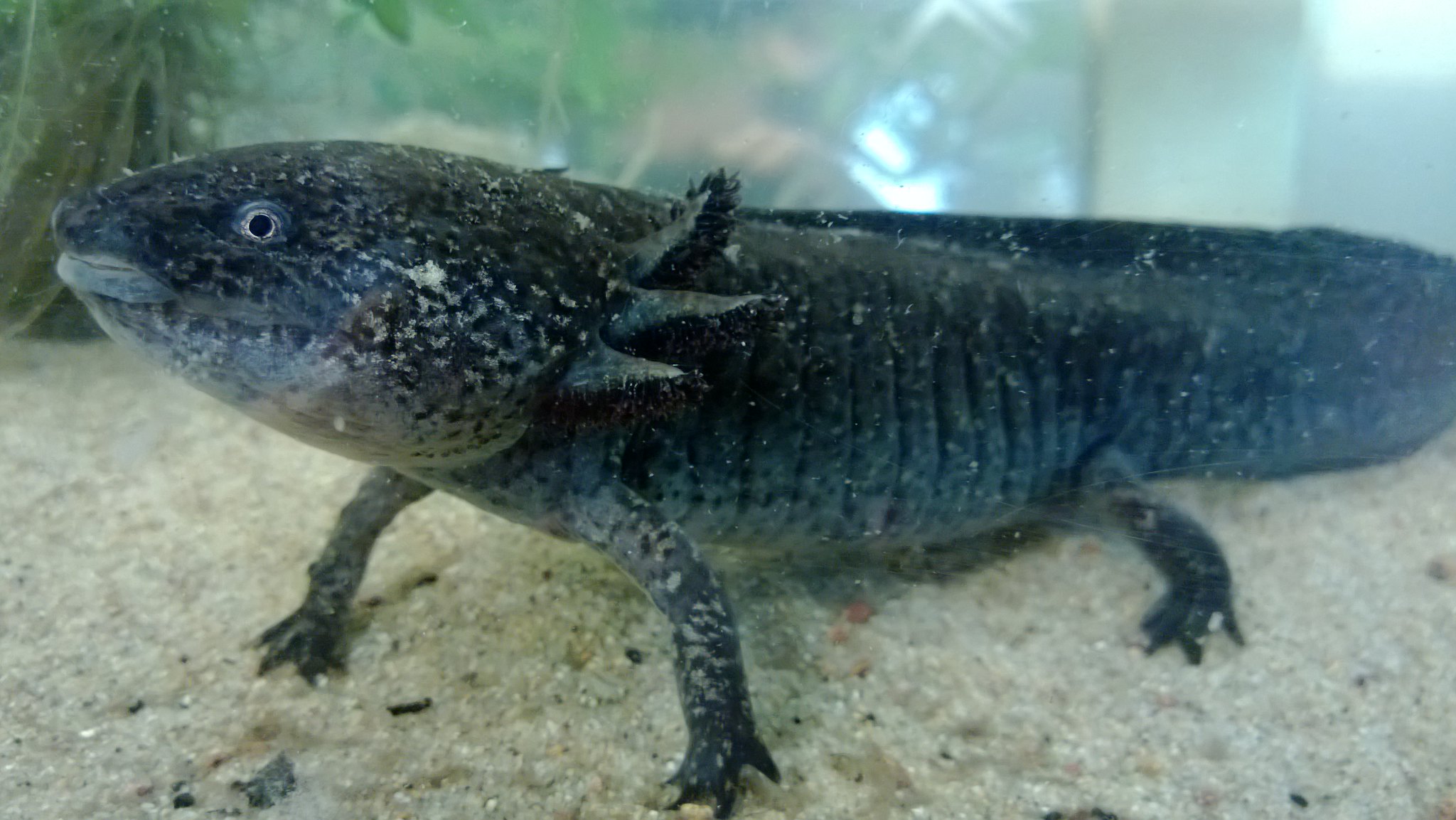Jessica Whited studies the genetics behind how salamanders grow severed limbs
By Eleanor Hasenbeck | Bond LSC

It takes about two months for an axolotl to regenerate a lost limb. Humans, as you probably know, don’t regenerate limbs.
But, a basic understanding of how the Mexican salamander regrows limbs advance regenerative medicine in humans according to Jessica Whited, a researcher at Brigham Women’s Hospital and assistant professor at Harvard Medical School.
Whited will speak at 3:30 p.m., Thursday April 13, in Monsanto Auditorium as part of Missouri Life Sciences Week at Bond Life Science Center. Her lecture, “Identifying roadblocks to regeneration in axolotl salamanders” will present the lab’s discoveries and evidence that a specific gene in axolotls can block the animal’s ability to regenerate.
Whited’s lab found axolotls can exhaust their ability to regenerate. When a limb is severed repeatedly, the salamander stops producing blastemas, the mass of cells capable of regeneration that allow the limb to grow back. This could be due to a dysregulated gene blocking the animal’s ability to produce them.
The Whited Lab sequenced the mRNA in axolotls that could regenerate limbs and that could no longer regenerate. They found 912 genes that differed between the two groups. Whited will discuss one of these genes, which her lab considers a potential inhibitor to regeneration.
“It’s much more common for people to think “Oh, what are the things that promote limb regeneration?’ than it is to think about the things that we might have to block to make it happen,” Whited said. “This project has the potential to uncover the roadblocks, which could turn out to be equally critical.”
An MU alumna, Whited received the National Institutes of Health New Innovator Award in 2015 for her work with this unique regenerative salamander. She earned a PhD in biology at the Massachusetts Institute of Technology, and two undergraduate degrees in biological sciences and philosophy at MU.
Whited attended MU as a Bright Flight and Curator’s Scholar. And though it happened nearly 20 years ago, she said receiving those two scholarships were among the most important things that happened in her career. As a high school student, she knew she would go to college, but financially, she didn’t know how it would happen. She also credits her education and undergraduate research experience at MU for preparing her to think at the research bench.
“You have to get an undergraduate education, and it totally prepared me even for graduate school at MIT, which is one of the top programs in the world, in many subjects, but in biology especially,” Whited said. “The idea that you could find a career where you’re using your brain as your primary asset, I figured that out while I was at the University of Missouri, because there were people, our professors, doing that.”
Whited’s lecture is free and open to the public as part of Missouri Life Sciences Week. It occurs at 3:30 on Thursday, April 13 in Bond LSC’s Monsanto Auditorium. See more about events during the week at bondlsc.missouri.edu/life-sciences-week.

